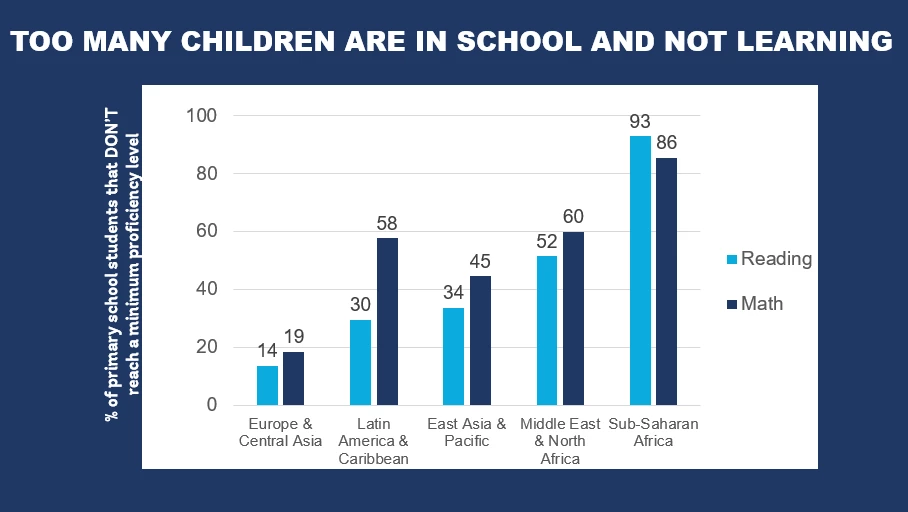
We are living in a learning crisis. According to the World Bank’s 2018 World Development Report, millions of students in developing countries are in schools that are failing to educate them to succeed in life. According to the UNESCO Institute of Statistics, there are 617 million children and youth of primary and secondary school age who are not learning the basics in reading, two-thirds of whom are attending school. The urgency to invest in learning is clear.
Nobel Prize winning economist James Heckman has made the case for investing in early childhood education based on cost-effectiveness. Early Childhood Development programs produce a host of benefits. One of them is preparing the child for primary school.
But the effectiveness of investments in children do not end there. Early childhood experiences have a profound impact on brain development, affecting learning, health, behavior, and ultimately, lifetime opportunities. Gaps in cognitive and social-emotional development in children’s early years, before they start school, can limit children’s ability to take advantage of primary school and realize their full potential. It is important that not only do children enter the classroom ready to learn, but that school offers a real opportunity for learning to take place.
And it is especially important that the first few years of schooling result in learning. This can be measured by the child’s ability to read and to comprehend what she reads. The ability to read enables children to access the curriculum and is thus a good indicator of whether an education system is doing its job. Reading makes them independent learners for life, reduces the cost of schooling, and raises the efficiency of public spending.
If it is important that children learn to read in the early grades, then it stands to reason that is important to measure that ability.
Just as learning has a return, there is a return to measuring learning. There is a cost-benefit analysis associated with measurement. Caroline Hoxby of Stanford University, discusses the cost of learning measurement. What she calls “a good accountability program” is highly affordable and includes comprehensive tests, standards and a report card system. She argues that “the most expensive programs in the United States generally cost less than one quarter of 1 percent of per pupil spending.” Globally, testing is among the least expensive innovations in education reform. In fact, in no country does testing cost more than 0.3 percent of the national education budget at the basic education level.
While participating in an international assessment might cost a country close to ¾ of a million dollars, an early reading assessment such as EGRA, on the other hand, costs just over 200,000, according to UNESCO. On a per student annual basis, the costs are 2 cents vs. 20 cents.
Early grade assessments have produced national learning studies for more than 80 countries. This massive knowledge base allowed us to compare results to other countries that have done international (PISA, TIMSS, PIRLS) or regional (PASEC, SACMEQ, LLECE, PILNA) assessments. In fact, the recently launched World Bank’s Human Capital Index puts all such countries on a common scale using the Harmonized Learning Outcomes database for 32 additional countries that have done national EGRAs – most of which are low to lower-middle income countries. These kinds of globally shared metrics of learning, which can be compared across countries and over time, have enormous value and prove that the global learning crisis is deep.
This confirms what the WDR 2018 reported when it said that a large number of the world’s children in low income countries cannot read. For the countries where we have data on learning, if we take a simple average of the results on reading and mathematics we find that only close to half of the children in school know how to read and do basic math.

The point is what are we going to do about it. Early measurement is a necessary start. Fortunately, the world has already endorsed this kind of measurement through the learning indicators for SDG 4: Education. We must now be sure to carry that mandate forward so that all countries are producing regular, reliable, and comparable early grade learning data.


Join the Conversation